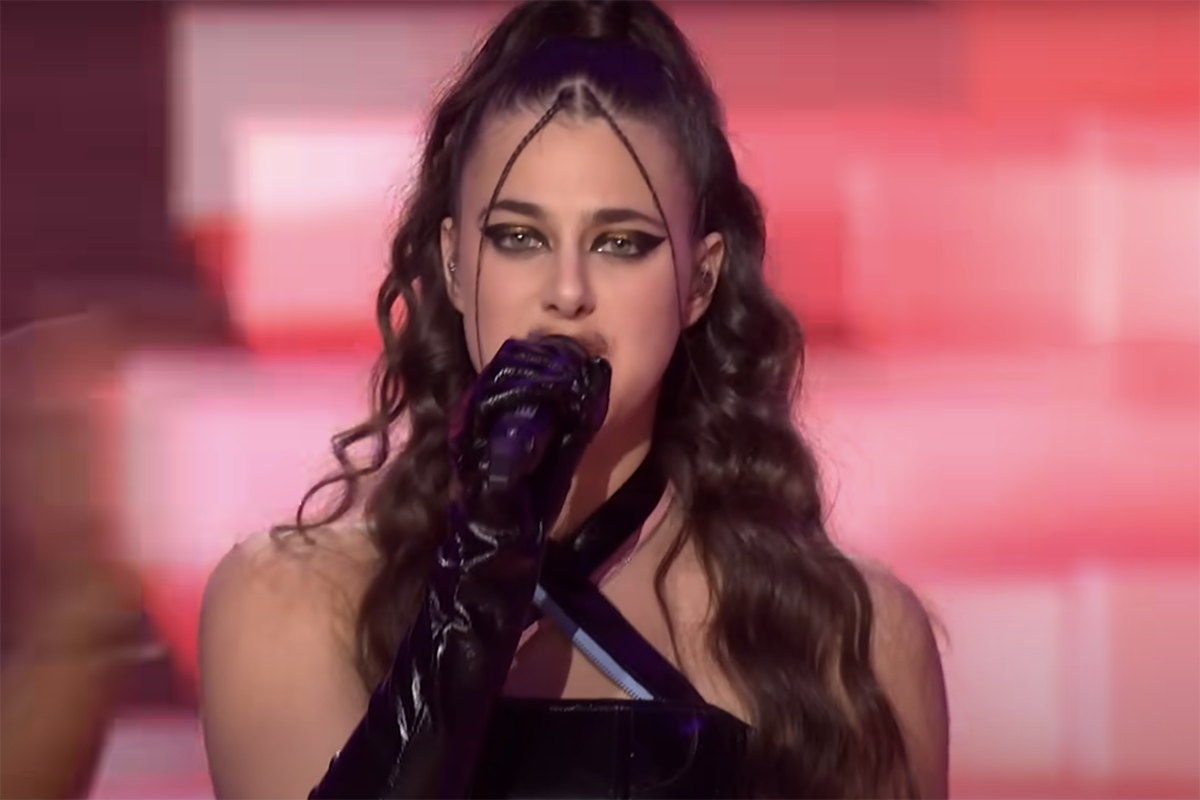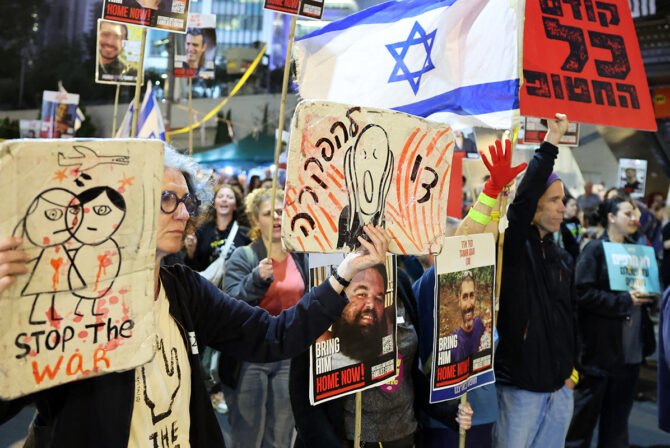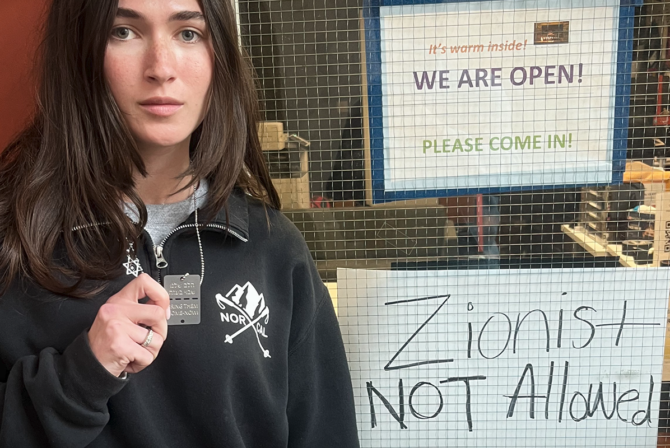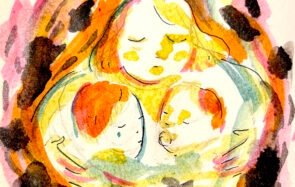The Eurovision, Europe’s biggest song contest and televised event, is not meant to be political, but that was always a promise hard to keep.
And this year, it’s proving even harder — as the war in Gaza rages on, some viewers are angry about Israel’s participation in the show. (Yes, Israel isn’t in Europe, but many non-European countries participate in the competition, which includes countries whose national broadcast networks belong to the European Broadcasting Union — or EBU.)
At this point, it looks like like efforts to remove Israel from the competition will be in vain. But whatever happens, one person of Israeli descent is going to participate in the Eurovision no matter what. This week, Tali Golergant, who goes by the stage name of Tali, was selected to represent Luxembourg in the upcoming contest, after 31 years of the country’s absence from the Eurovision stage.
Tali’s song, “Fighter,” co-written with a Paris-based musical team that includes Italian musician Dario E, or Dardust, who wrote the excellent 2019 Eurovision hit “Soldi,” is honestly a perfect Eurovision bop. It mixes English and French — one of the country’s three official languages. It has a catchy, danceable chorus, with a fun rallying cry that reminds us that we’re all fighting something — be it inner demons or external forces working against us. It’s feminist, upbeat and a little sexy (her performance features lots of faux leather, chains and fishnet for a number that’s essentially a saccharine pop anthem).
According to Tali, the song encourages listeners “to be a fighter and to really keep going with your dreams, and to really keep going everyday.” It’s something that connects very personally with this 23-year-old creative, who has been pursuing a musical career in New York in recent years, and sometimes asks herself, “Should I continue this career or not?”
Tali was born in Jerusalem, but only spent a few months living in the country. Her mother is Israeli, and her dad is a Peruvian Jew who made aliyah to attend university in Israel, but his work sent him all over the world when Tali was young. The family finally settled in Luxembourg, where Tali spent a decade of her life, studying at the small nation’s International School and honing her musical skills. In an interview with an Israeli Eurovision fan site, Tali said that she and her family visit Israel at least once a year.
Over the past few years, however, Tali has been pursuing her dream of being a musician in New York City, the place where she fell in love with musical theater when her grandfather Amnon took her to see “Mamma Mia.” She graduated from Marymount Manhattan College and even played Tzeitel in a production of “Fiddler on the Roof.” It was while working, and sometimes struggling, to make a name for herself in the NYC music scene that she got the opportunity to compete in Luxembourg’s pre-Eurovision. Even that opportunity had her faced with hardship — she brought an original song to the contest that ended up being rejected. But finding “Fighter” felt serendipitous — it was a song she didn’t write, but captured her experience as a young woman perfectly. “When I heard it, it felt like me,” she said.
She also loves the little bit of salsa in the song, saying it makes “my Latino heart [come] out a little.”
“It’s about women empowerment to the core,” she summarized in another interview.
Tali is already getting some hate (and also lots of love from Israelis) on her social feeds, yet her song, like many great Eurovision songs, is general and broad enough to be applicable to so many who feel like they’re, as Tali said, “fighting through the hardest parts of their life.” At the end of the day, it’s an energizing, powerful comeback for Luxembourg as it reenters the beloved competition.
Still, this is going to be a dramatic year for the competition. Even though EBU has decided that Kan, Israel’s broadcast network, “complies with all competition rules,” there have been petitions in several countries requesting the country’s exclusion. A few former competitors of the contest, including Hatari, an Icelandic techno-punk band that was fined for waving a Palestinian flag at the 2019 Eurovision which took place in Israel, have demanded that Israel be shunned from the competition. And Iceland’s own broadcast network has already said that it might not participate in the song contest if Israel does, though it is still running its internal Eurovision semi-finals and finals to choose a representative, and Palestinian singer Bashar Murad will be competing in the contest.
In actuality, it has been a dramatic few years at the Eurovision. The EBU is considered an apolitical organization. In 2022, however, the EBU did not allow Russia to compete because of its invasion of Ukraine, which led to the country’s broadcast authorities’ withdrawal from the union. Ukraine’s enchanting “Stefania” won that year’s competition, and Liverpool guest-hosted the competition in 2023, because the eastern European nation was, and is still, embroiled in war.
The 2024 Eurovision will take place in Malmö, Sweden this spring, after the country won the competition with Loreen’s “Tattoo” last year, with the semi-finals taking place on May 7 and 9, and the final competition on May 11. Israel’s own representative will be selected on February 6, and we will see if they can best last year’s standout contender, “Unicorn.” While I am dreading the drama that will inevitably unfold, I can’t wait to see Tali rock it on the stage.








